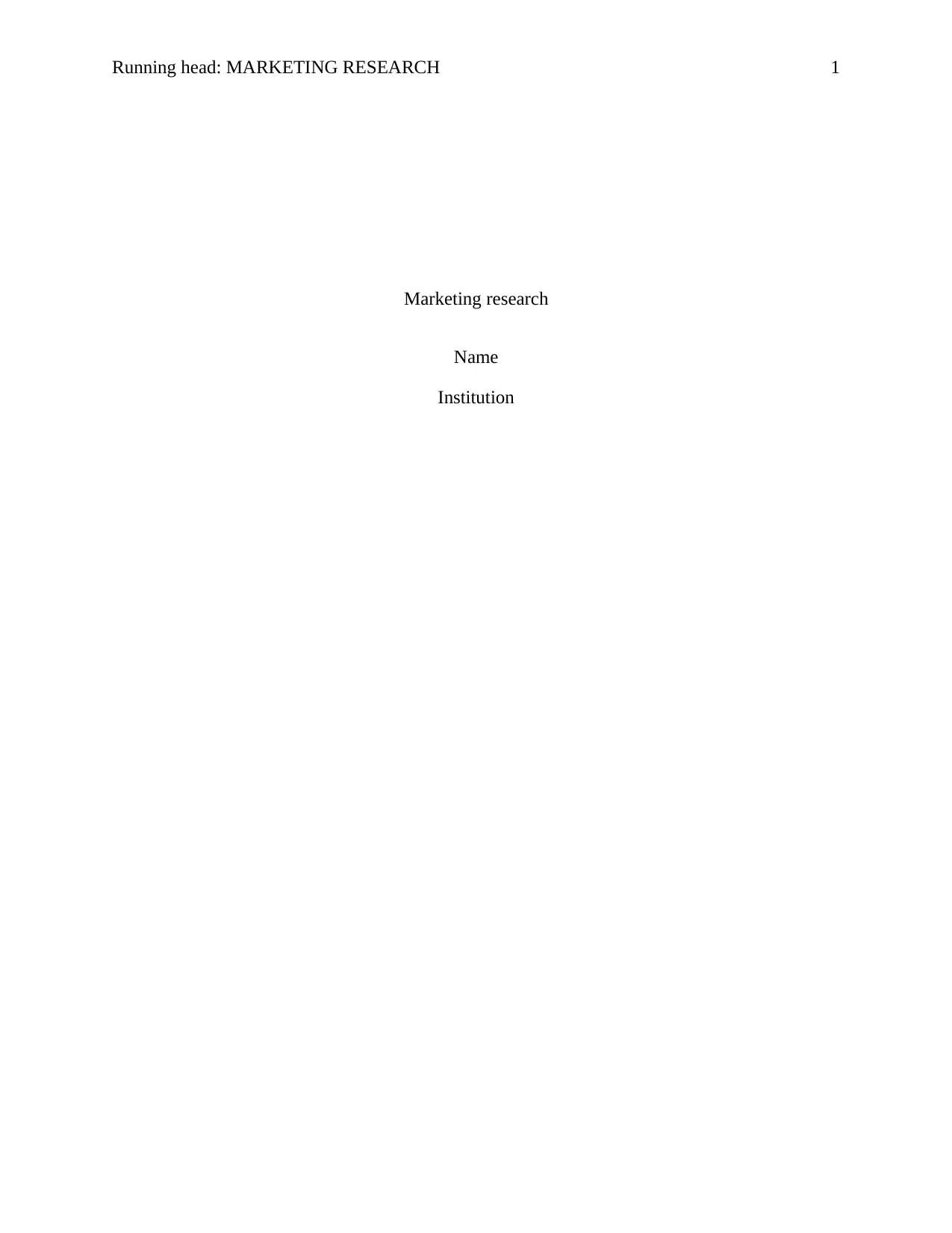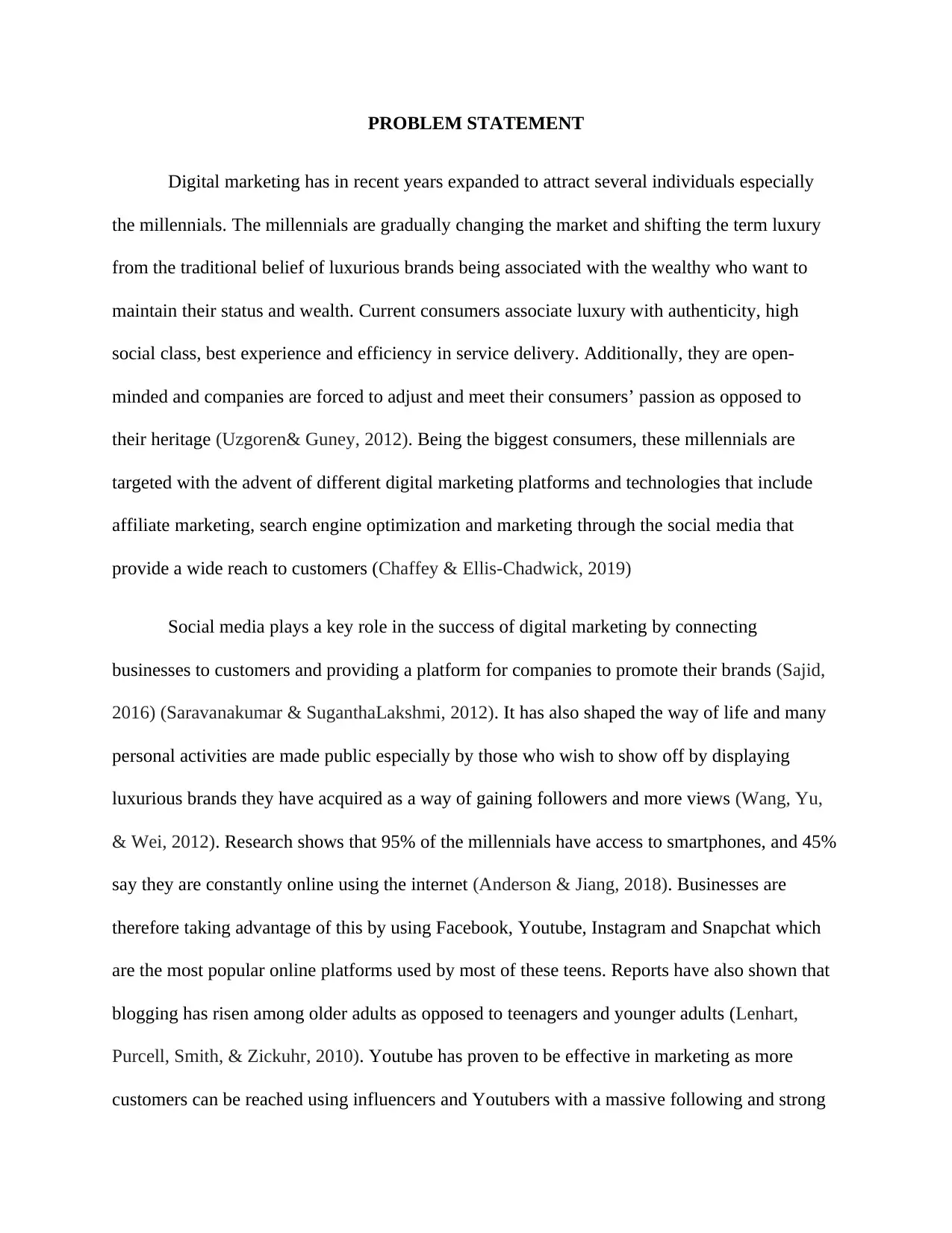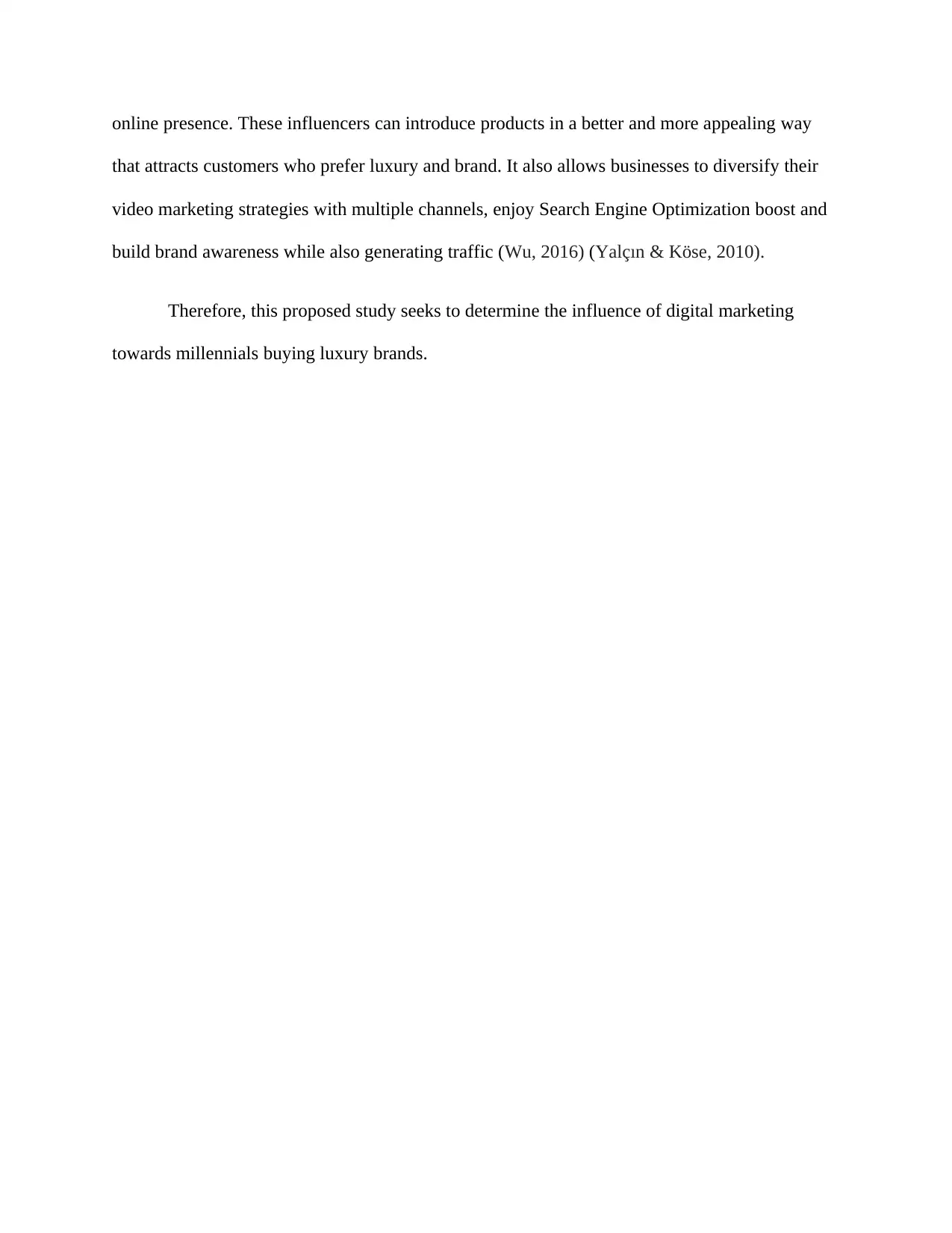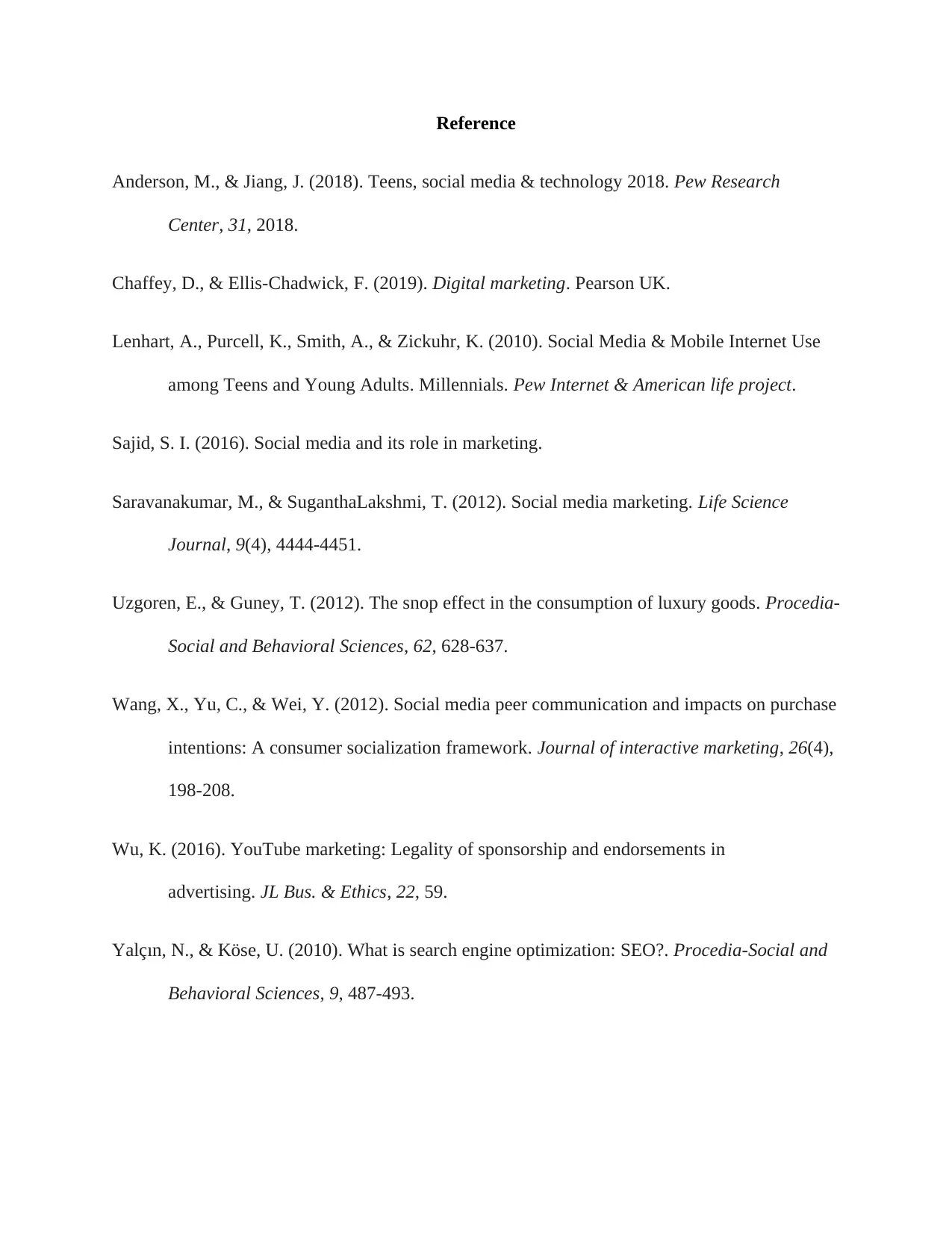Digital Marketing's Influence on Millennials and Luxury Brands
VerifiedAdded on 2022/08/17
|4
|713
|17
Report
AI Summary
This report explores the significant influence of digital marketing on millennials' purchasing behaviors, particularly concerning luxury brands. It highlights how millennials, as the largest consumer group, are targeted by various digital marketing platforms like social media, search engine optimization, and affiliate marketing. The study emphasizes the crucial role of social media in connecting businesses with consumers, shaping lifestyles, and showcasing luxury brands. It also examines the impact of platforms like YouTube, used by influencers, and the increasing use of smartphones. The research references studies on millennials' online habits and the effectiveness of digital marketing strategies. The report concludes by seeking to determine the influence of digital marketing towards millennials buying luxury brands. The research draws on existing literature to analyze the evolving landscape of luxury brand consumption in the digital age.
1 out of 4





![[object Object]](/_next/static/media/star-bottom.7253800d.svg)